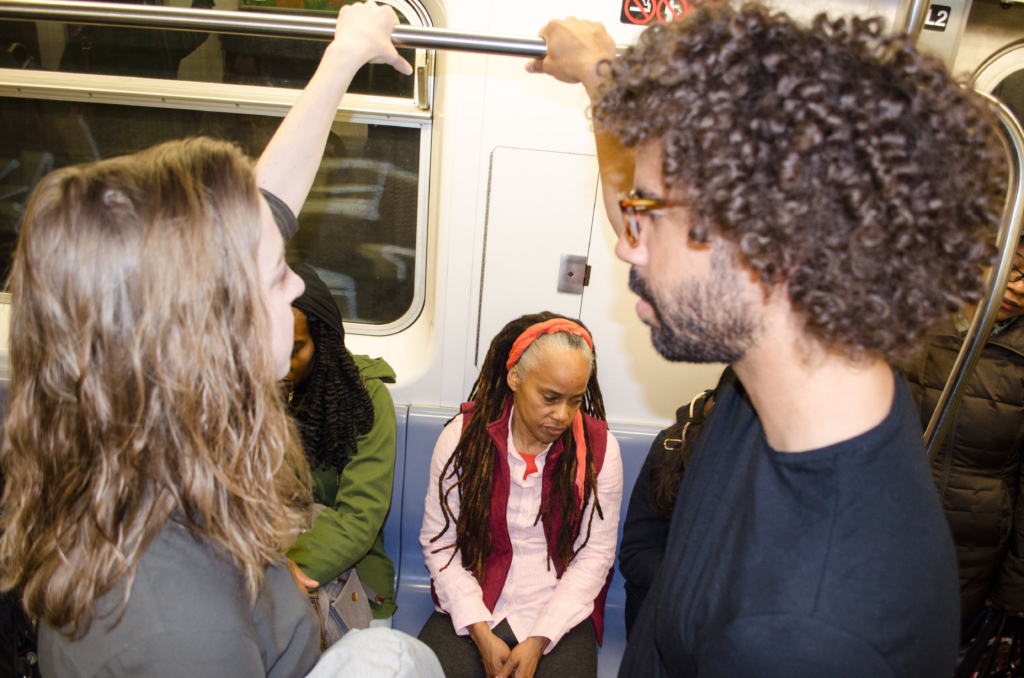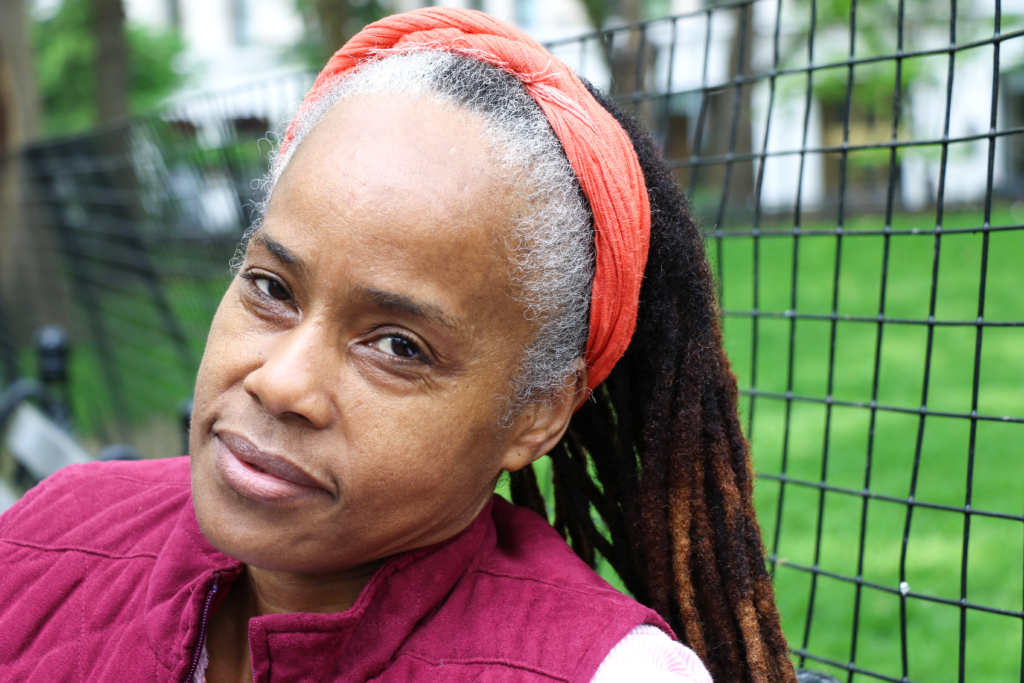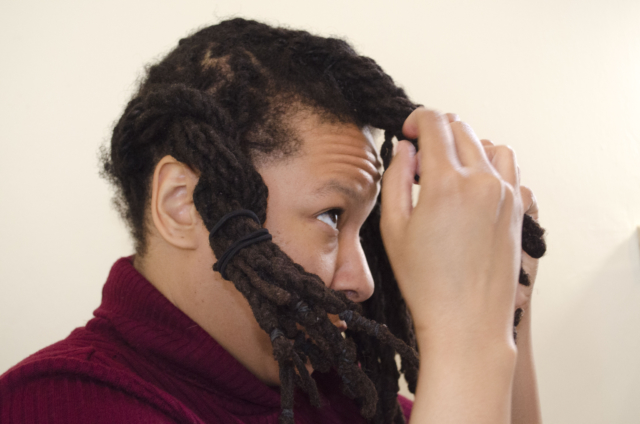
Audio By Carbonatix
It’s time to confront laws and policies which makes white and foreign standards superior.
In December 2019, following a growing movement to end hair discrimination, often targeting
blacks, in the United States, I focused my Investigative project at New York University on hair
justice.
My project focused on hair laws and the centuries of well-orchestrated racist policies
aimed at abolishing and rending black hairstyles as undignified.
Below is the introduction to my project:
“For years, many African Americans and people of colour have had to contend with dressing their hair to appease white standards. In most cases, that meant cutting off their long natural hair, styling their hair with toxic chemicals to relax the kinky hair, tying their hair down or completely covering them.
Those who refused to conform were either dismissed from work, received no promotion or forced to resign, while in schools students faced suspension or some other disciplinary actions.”
So far, the decision by the authorities at the Achimota Secondary has provoked a strong debate,
especially across social media platforms. And rightly so!
You see, what our fellow black and people of colour are facing in the United States and across
Europe is no different from what those two innocent aspiring secondary students are currently
contending with in Achimota.

It is centuries of laws, policies, and deliberate attempts to dehumanise, debase and render everything associated with the black body; from the colour, texture and styles of our hair to the very colour of our skin.
That notion of attributing everything negative to the colour black comes from the classical textbook of white supremacy.
Through centuries of slavery, colonialism, racism and both covert and overt grooming standards and
policies, these racist and anti-black policies have been handed down from generation to generation to the extent that in today’s modern Ghana well meaning Ghanaians would want the world to believe that two young men wearing their hair naturally are not fit to sit in class.
And the reason? Because the administrators of that school think so!
When the New York Human Rights Commission was petitioned by some workers who accused
their employers of hair discrimination, the Commission went straight into action.
In addition to investigating those allegations, it went ahead to create a guidance abolishing all forms of
discrimination against a person’s natural hair.
The following is an excerpt to that guidance: “Anti-Black racism is an invidious and persistent form of discrimination across the nation and in New York City. Anti-Black bias also includes discrimination based on characteristics and cultural practices associated with being Black, including prohibitions.
"On natural hair or hairstyles most closely associated with Black people.1 Bans or restrictions on natural hair or hairstyles associated with Black people are often rooted in white standards of appearance and perpetuate racist stereotypes (emphasis mine) that Black hairstyles are unprofessional.”
I spoke with over a dozen African-Americans who either lost a job, were forced to resign, faced
harassment at work or have had to put up with reckless comments regarding their natural
hairstyles.
In the school circles, young pupils and students were either dismissed or forced to cut their hair to conform to what their often-white administrators considered appropriate styles and hair as well as grooming laws and policies were passed across states to penalise and deny students the right to appear in school with a natural hair on them.
In prisons, black prisoners were shaved off their locs and afros simply because prison guards based those actions on
obnoxious racist laws targeting the black hair.
At the time I wrote my thesis in December 2019 two states in the US-California and New
York - passed legislations banning hair discrimination.
One of the best news that came out during the 2020 Covid-19 pandemic was the passage of a federal law known as the CROWN Act.
That Act, passed but the Congress of the United States, makes hair discrimination illegal across all
50 states.
It took the US decades of inaction but finally, it has taken steps to make sure that all Americans devoid of the colour of their skin or the hairstyle they wear, are protected and that no employer, school administrator, prison warden or even the government denies them of a basic right to keep a natural hair.
Before the first white settler landed on the shores of this continent, our ancestors wore their hair
naturally, until the foreigner came and decided to tell us our hairstyles did not conform to theirs,
so ours were inferior.
They used laws, religion and all the structures of the state to enforce what they considered appropriate hairstyles, in conformity with their Caucasian standards. In many instances, our people were made to use chemicals created by the very white migrants to perm, relax and change the texture and colour of their hair to meet the standards imposed on them.
Speak to our female employees in the formal and informal sectors and you will hear the stress
placed on them by their employers to keep their hair in certain styles or shapes to meet the so-
called corporate standards.
Funny enough, many white employers in this country have no burden on their shoulders to keep their hairstyles in any decent form at all. Same is our schools. I can bet with my ten cents that were these two students of a Caucasian background or colour, there would be no hullabaloo over their hairstyles.

Following Ghana’s independence, thanks to the dominant Christian religion, the foreign
grooming standards left behind by the white invaders, have remained. This is the same practice
across most of the African continent.
Today, Ghana turns 64. My fifty-something year old sister has a grandchild. By this age, Ghana
is a grandma and grandmas do not wait for someone else to dictate to them.
It is about time we confronted the elephant in the room; those old colonial relics we still hold on to from the
grooming standards we have held onto so dearly for centuries, among the clergy (the cassock), in
our law courts (the funny wig and robe in this hot and humid tropical weather), the school
uniforms, among others.
How about at our offices? Why must it take just Fridays and weekends for most Ghanaian workers to be free to wear Ghana-made clothes to our offices? Whose interest does a coat or foreign made so-called formal outfits serve? Does it not go to serve the very system our beloved Kwame Nkrumah and the founding fathers fought fiercely to dismantle?
Imagine what benefits our local economy stands to gain if workers in the banking, insurance, real
estate and other sectors of our economy were made to wear our beautiful fabric to work daily
(not just on Friday or weekends).
Achimota is not an isolation, it just happens to be a Ghanaian Ivy League school and is right in
the heart of Accra. So, it received so much attention that the first hint I had of this case was a
post by a member of parliament.
There are several other school kids who are given the marching orders by teachers and school administrators for less offenses; either that their newly barbered hairstyles were too “wild” or gbevu-looking, etc. In fact, there are teachers who carry a pair of scissors to school to forcefully impose what’s in their eyes, acceptable hairstyles on innocent
children. This is not new, it has gone on for years.
What beats my imagination is the decision by Achimota school to reject the directive from the government’s mandated body which oversees education in this country.
Since when do schools dictate what laws and policies they are governed by, without the supervision of the Ghana
Education Service?
I can only imagine what precedence Achimota school would be setting if the GES
does not stamp its feet and make sure that these young students get the best education they
deserve in that school.
What’s more interesting is how well one of those students held his rasta firmly behind him. I bet he was better dressed than many of his cohorts who arrived on campus that day. Yet, his hairstyle singled him out and he bore the wrath of an irate administrator.
Please! I heard the comments made by the Graduate Teachers Association and the argument by its spokesperson was that every school in Ghana has its own policies governing it, and that any parent who sends their ward to a school must bear that in mind and respect those policies, no matter how illegitimate our outmoded those policies are.
He even went on to fault the Ghana Education Service for intervening in the matter and for ordering Achimota School to (re)admit the students.
In order words, Angel Carbonu and the great people at NAGRAT want Ghanaians to accept
whatever bylaws, guidance and policies instituted by schools across this country, no matter how
bad those laws or policies are.
Not even if those policies conflict with the basic laws of this country. I like Mr. Carbonu for his fighting spirit and his fierce position and passion on issues bothering on the welfare of teachers. I only pray he would channel this same passion in defending the basic rights of every Ghanaian child to education, devoid of their physical looks,
faith, ethnic background, etc. Pupils and students welfare, like those of their teachers, do matter too!
Instead of fighting the GES for attempting to right the wrong done by Achimota school, why wont
NAGRAT and other teacher Unions ensure that school administrators take the effort to make
bylaws and policies that do not conflict with the fundamental rights of pupils and students?
Unless NAGRAT wants Ghanaians to believe that Achimota School has a higher authority than
the GES, NAGRAT should kindly eat a humble pie and ensure that its members abide by the
sovereign laws of this nation.
I also heard some people make the legal argument that the action of Achimota School is right. I
am no legal expert and would dare not dabble in the legalities of the argument.
What I do know is that our constitution upholds the fundamental right of all Ghanaians to basic education. That
should be devoid of one’s physical look.
More so when the standard for judging that look was imposed on this nation by foreign forces the very forces we deposed over 6 decades ago no matter how old it is and no matter how comfortable we have become with it. As the saying goes, an unjust law is no law at all.
Latest Stories
-
Uproar as UG fees skyrocket by over 25% for 2025/2026 session
32 minutes -
Japan PM joins fight for more female toilets in parliament
1 hour -
Ga Mantse declares war on fishing industry child labour
2 hours -
Adom FM’s ‘Strictly Highlife’ lights up La Palm with rhythm and nostalgia in unforgettable experience
3 hours -
OMCs slash fuel prices as cedi gains
4 hours -
Around 40 dead in Swiss ski resort bar fire, police say
5 hours -
AFCON 2025: Aubameyang and Nsue make history among oldest goalscorers
6 hours -
AFCON 2025: How Kwesi Appiah’s Sudan qualified for round of 16 without scoring any goal
7 hours -
Ghana is rising again – Mahama declares
7 hours -
Firefighters subdue blaze at Accra’s Tudu, officials warn of busy fire season ahead
7 hours -
Luv FM’s Family Party In The Park ends in grand style at Rattray park
7 hours -
Mahama targets digital schools, universal healthcare, and food self-sufficiency in 2026
8 hours -
Ghana’s global image boosted by our world-acclaimed reset agenda – Mahama
8 hours -
Full text: Mahama’s New Year message to the nation
8 hours -
The foundation is laid; now we accelerate and expand in 2026 – Mahama
8 hours

